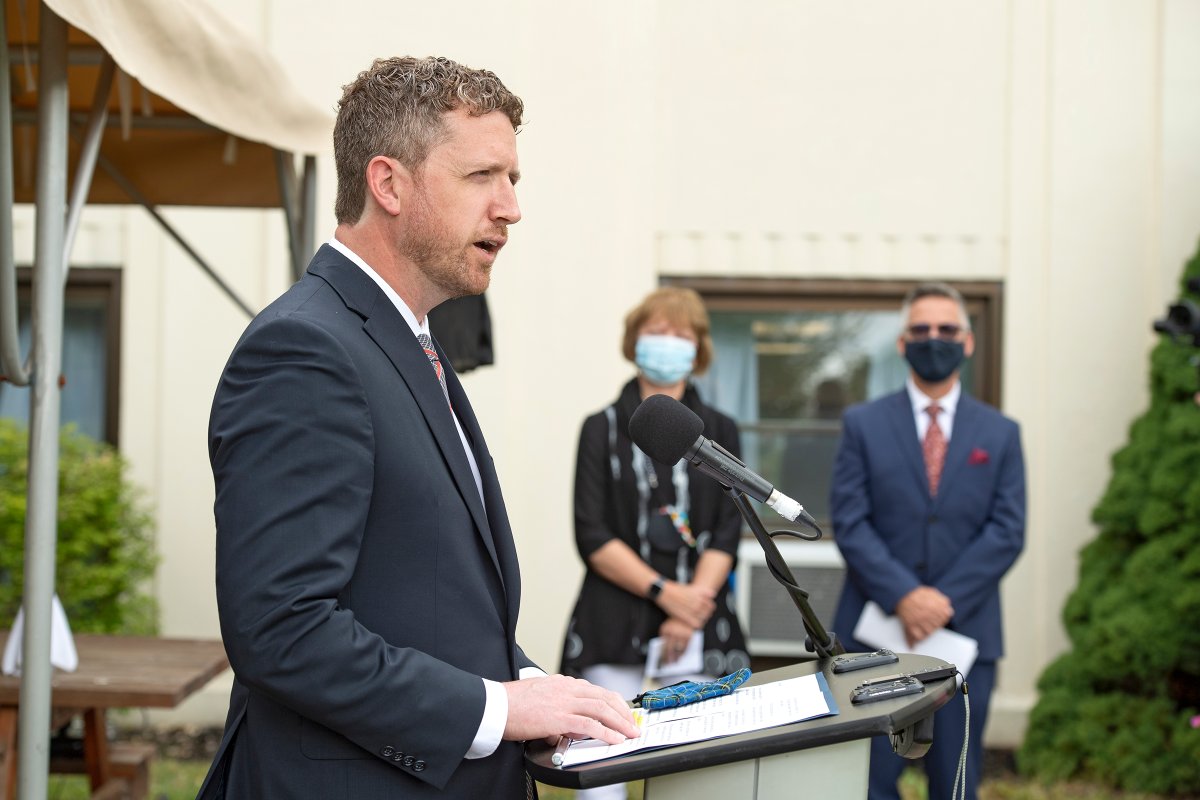Nova Scotia’s premier is continuing to downplay speculation around a provincial election call next month, even as opposition leaders say the signs are evident the governing Liberals are preparing to go to the polls.

The Liberals continued to roll out spending announcements across the province on Monday, adding to a growing list of campaign-style photo opportunities over the last three weeks.
A number of them have featured Premier Iain Rankin, who is looking to boost his profile after taking over from two-term premier Stephen McNeil in February.
“I still have a lot of time,” Rankin said in a brief interview Monday. “There are other commitments that I plan on delivering on before I call an election.”
Nova Scotia is the only province in Canada without a fixed election date, and Rankin must call an election before May 30 of next year, when the government hits the five-year mark of its mandate.
However, the premier has continually dodged questions about a pending election and has justified the spending rollout as being “fairly typical” of what happens after a government passes a budget.
Meanwhile, all three of Nova Scotia’s major parties have stepped up their nominations in order to fill out their slate of candidates for the province’s 55 ridings. As of Monday the Tories had nominated 47 candidates while the Liberals and NDP had nominated 42 candidates each.
- Alberta to overhaul municipal rules to include sweeping new powers, municipal political parties
- Canada, U.S., U.K. lay additional sanctions on Iran over attack on Israel
- No more ‘bonjour-hi’? Montreal mayor calls for French only greetings
- Trudeau says ‘good luck’ to Saskatchewan premier in carbon price spat
“Certainly the Liberals are doing the traditional pre-writ drop strategy of spending money all over,” said Progressive Conservative Leader Tim Houston. “We can only do what we can do to be ready, and that means making sure we have candidates in place ready to share our vision.”
However, Houston said with the province beginning to emerge from a lockdown following a third wave of COVID-19, the focus should remain on combating the virus rather than an election.
“We have to get through COVID,” he said in an interview. “That means getting more vaccines in arms and making sure that we’re thinking about COVID management.”
Rankin confirmed that he’s ready to announce during a briefing Tuesday that Nova Scotia will open its travel boundaries to the rest of Canada on Wednesday and will also implement Phase 3 of its five-step reopening plan.

NDP Leader Gary Burrill said the border reopening announcement points to an imminent election call.
“When the premier says that he’s not thinking about an election, I think it must be hard for him not to break out laughing,” Burrill said in an interview. “Anybody that’s used to the signs knows that we’ve got all the signs.”
Erin Crandall, an associate professor in the department of politics at Acadia University, agrees that most of the pre-election signs are evident, but she cautions the “big spending” might not be unusual in this case because the province’s economy needs ongoing support during the pandemic.
It’s also generally thought that the provincial Liberals’ window to call a vote this summer will largely depend on the plans of their federal counterparts in Ottawa, where election speculation is also rampant.
Crandall said the Liberals will want to be prepared to fight one election at a time. “That is a big question mark, and you would anticipate that federal Liberals and provincial Liberals would be communicating about that,” she said.
And despite the fact the Nova Scotia Liberals would be looking for a rare third term in office, Crandall said they will be buoyed by the outcome of Canadian elections held since the onset of the pandemic.
Incumbent governments have been returned to power in New Brunswick, British Columbia, Saskatchewan, Newfoundland and Labrador and Yukon.
“Under these unique circumstances, voters may be more interested or willing to maintain the status quo,” Crandall said. “There’s nothing right now in Nova Scotia that would suggest that the Liberals are in danger politically.”
This report by The Canadian Press was first published June 28, 2021.



Comments